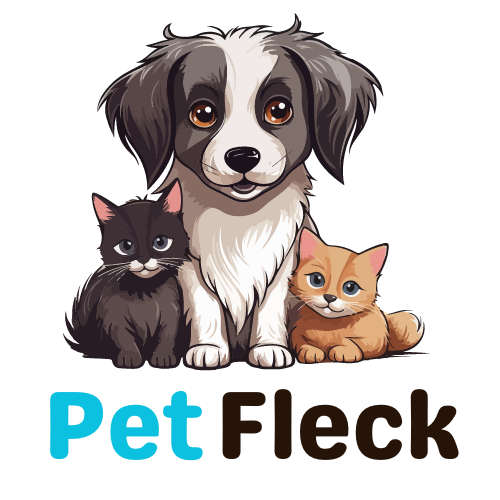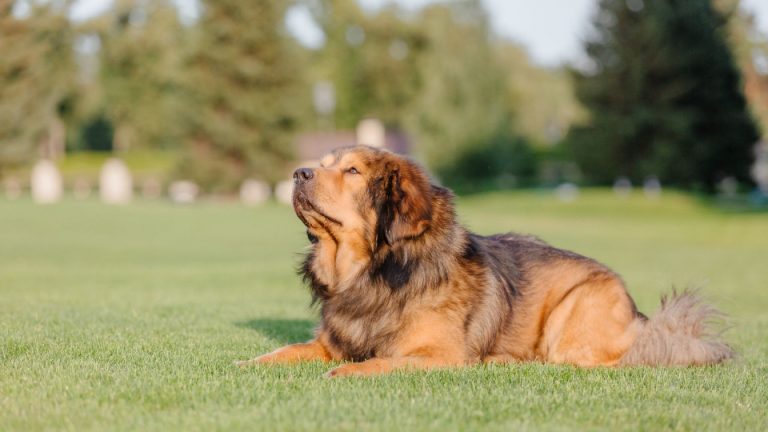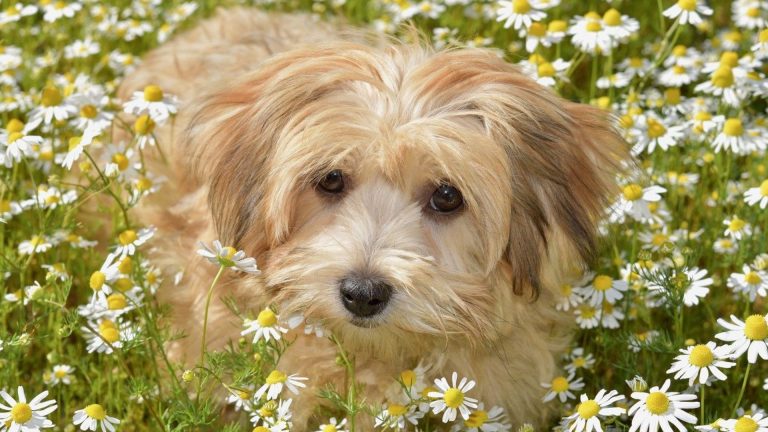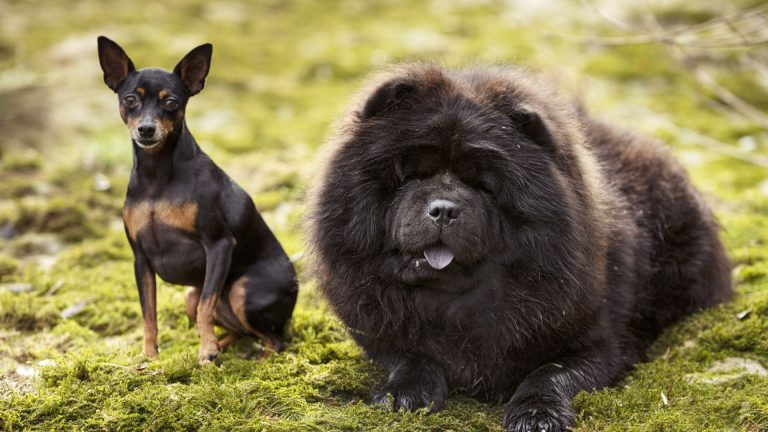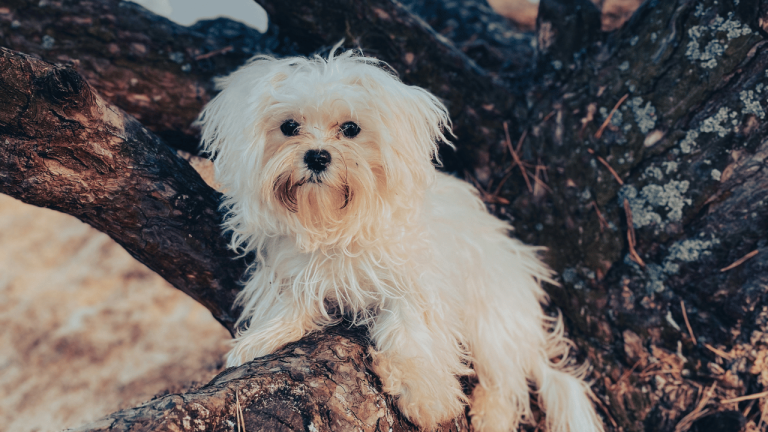
Contents
- 1 What is a Mini Goldendoodle?
- 2 Physical Characteristics of a Full-Grown Mini Goldendoodle
- 3 Temperament and Personality
- 4 Exercise and Activity Needs
- 5 Grooming Requirements
- 6 Health Considerations
- 7 Training and Socialization
- 8 Living with a Full-Grown Mini Goldendoodle
- 9 Nutrition and Feeding
- 10 Conclusion
Mini Goldendoodles have taken the dog world by storm, capturing the hearts of dog lovers everywhere with their adorable looks and charming personalities. As a crossbreed between a Miniature Poodle and a Golden Retriever, these pint-sized pooches offer the best of both worlds in a compact package.
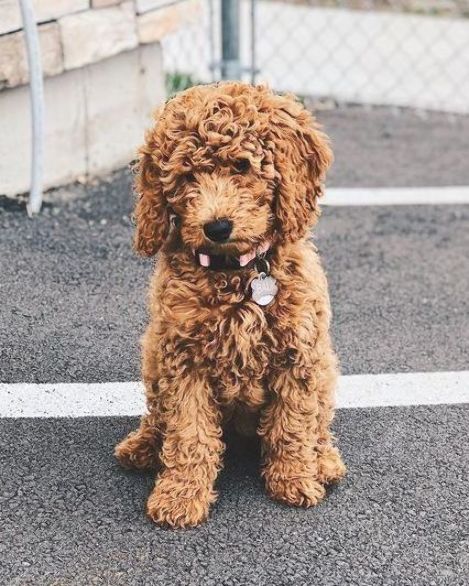
If you’re considering adding a mini goldendoodle to your family or already have one, you might be wondering what to expect when they reach their full-grown size. This comprehensive guide will walk you through everything you need to know about full-grown mini goldendoodles, from their physical characteristics to their care requirements.
What is a Mini Goldendoodle?
Mini Goldendoodles are a designer breed that has gained immense popularity in recent years. These adorable dogs are the result of crossing a Miniature Poodle with a Golden Retriever. The goal of this breeding is to combine the intelligence and low-shedding coat of the Poodle with the friendly and outgoing nature of the Golden Retriever, all in a smaller size than the standard Goldendoodle.
The Mini Goldendoodle is not recognized as an official breed by major kennel clubs, but that hasn’t stopped them from becoming a beloved choice for many dog owners. Their compact size makes them suitable for various living situations, from apartments to houses with yards, while still maintaining the lovable qualities of their larger counterparts.
Physical Characteristics of a Full-Grown Mini Goldendoodle
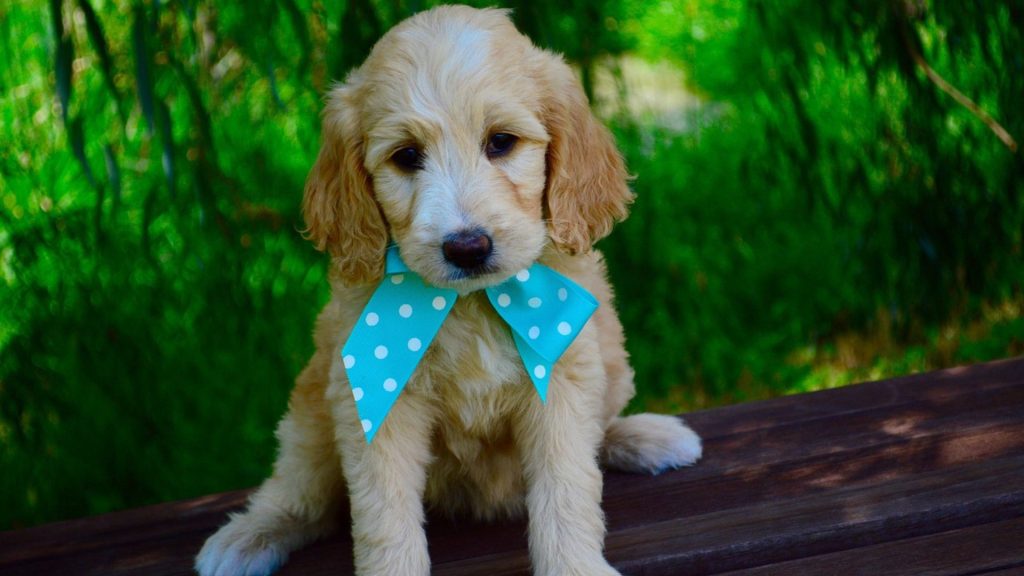
Size and Weight
One of the most common questions potential owners have is, “How big will my mini goldendoodle get?” When it comes to mini goldendoodles full grown, their size can vary depending on several factors. On average, a full-grown mini goldendoodle typically stands between 13 to 20 inches tall at the shoulder and weighs between 15 to 35 pounds.
However, it’s important to note that the final size of a mini goldendoodle can be influenced by:
- The size of the parent breeds
- The specific generation of the crossbreed (F1, F1b, F2, etc.)
- Genetics and individual variation
Some mini goldendoodles may fall on the smaller end of the spectrum, while others might be slightly larger. It’s always a good idea to ask the breeder about the expected adult size based on the parents and previous litters.
Coat Types and Colors
One of the most endearing features of mini goldendoodles is their soft, cuddly coat. Full-grown mini goldendoodles can have one of three main coat types:
- Wavy: A perfect blend between the Poodle’s curls and the Golden Retriever’s straighter coat.
- Curly: More resembling the Poodle parent, with tight curls that are often more hypoallergenic.
- Straight: Less common, but some mini goldendoodles may have a straighter coat more like the Golden Retriever.
When it comes to colors, mini goldendoodles offer a delightful palette. Common coat colors include:
- Cream
- Apricot
- Red
- Golden
- Chocolate
- Black
- Parti (combination of two or more colors)
The variety in coat types and colors means that each mini goldendoodle has a unique and adorable appearance.
Temperament and Personality
Full-grown mini goldendoodles are known for their friendly and affectionate nature. They inherit the best personality traits from both parent breeds, resulting in a dog that is:
- Intelligent and eager to please
- Social and outgoing
- Gentle and patient, especially with children
- Playful and energetic
- Adaptable to various living situations
These dogs thrive on human companionship and are often referred to as “velcro dogs” due to their tendency to stick close to their owners. They generally get along well with other pets and are quick to make friends with both humans and animals.
Mini goldendoodles are also known for their high intelligence, which they inherit from both the Poodle and Golden Retriever. This makes them highly trainable, but it also means they require mental stimulation to prevent boredom and potential destructive behaviors.
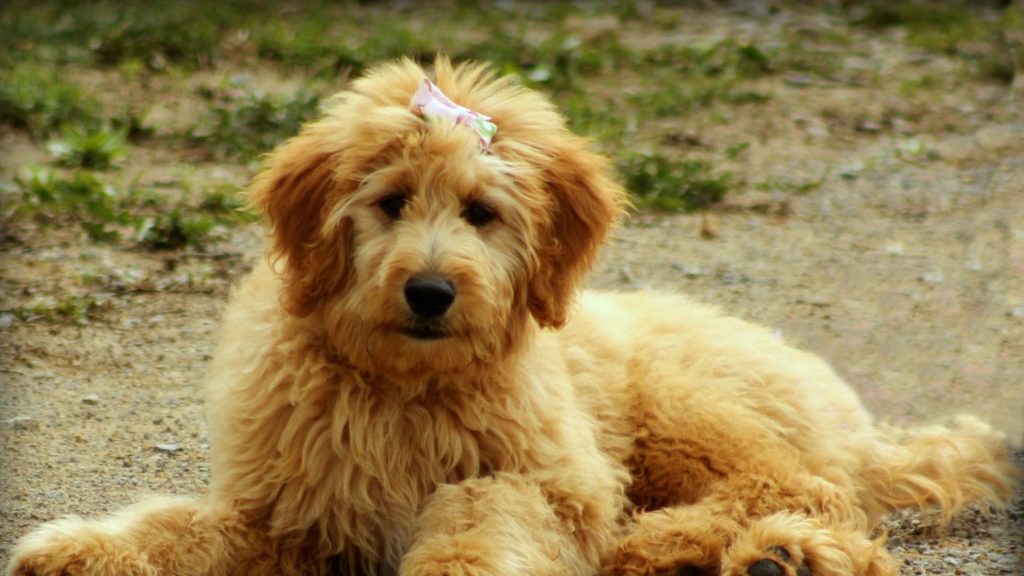
Exercise and Activity Needs
While mini goldendoodles may be smaller than their standard-sized cousins, they still have plenty of energy to burn. A full-grown mini goldendoodle typically requires about 30 to 60 minutes of exercise daily. This can be broken up into shorter sessions throughout the day to accommodate busy schedules.
Suitable activities for mini goldendoodles include:
- Brisk walks or jogs
- Fetch in the backyard or at a dog park
- Swimming (many inherit the Golden Retriever’s love of water)
- Agility training
- Interactive puzzle toys for mental stimulation
Regular exercise not only keeps your mini goldendoodle physically fit but also helps prevent behavioral issues that can arise from pent-up energy. It’s also an excellent opportunity for bonding with your furry friend.
Grooming Requirements
The grooming needs of a full-grown mini goldendoodle can vary depending on their coat type, but generally, they require regular maintenance to keep their coat healthy and tangle-free. Here’s what you need to know:
- Brushing: Aim to brush your mini goldendoodle at least 2-3 times a week, or daily for curlier coats. This helps prevent matting and reduces shedding.
- Bathing: Bathe your mini goldendoodle every 4-6 weeks, or as needed. Use a gentle dog shampoo to avoid drying out their skin.
- Haircuts: Professional grooming every 6-8 weeks can help maintain their coat and keep them looking their best.
- Nail trimming: Regular nail trims (every 2-4 weeks) are essential to prevent overgrowth and discomfort.
- Ear cleaning: Check and clean their ears weekly to prevent infections, especially if they love swimming.
- Teeth brushing: Aim for daily teeth brushing to maintain good oral hygiene.
While mini goldendoodles are often touted as hypoallergenic, it’s important to note that no dog is truly 100% hypoallergenic. However, their low-shedding coats do make them a good choice for allergy sufferers.
Health Considerations
Like all breeds, mini goldendoodles can be prone to certain health issues. While they are generally healthy dogs, being aware of potential problems can help you provide the best care for your furry friend. Some health concerns to watch for in full-grown mini goldendoodles include:
- Hip dysplasia
- Progressive Retinal Atrophy (PRA)
- Ear infections
- Allergies
- Patellar luxation
- Von Willebrand’s disease
Regular check-ups with your veterinarian, a balanced diet, and proper exercise can help prevent or manage many of these issues. It’s also crucial to obtain your mini goldendoodle from a reputable breeder who conducts health screenings on their breeding dogs.
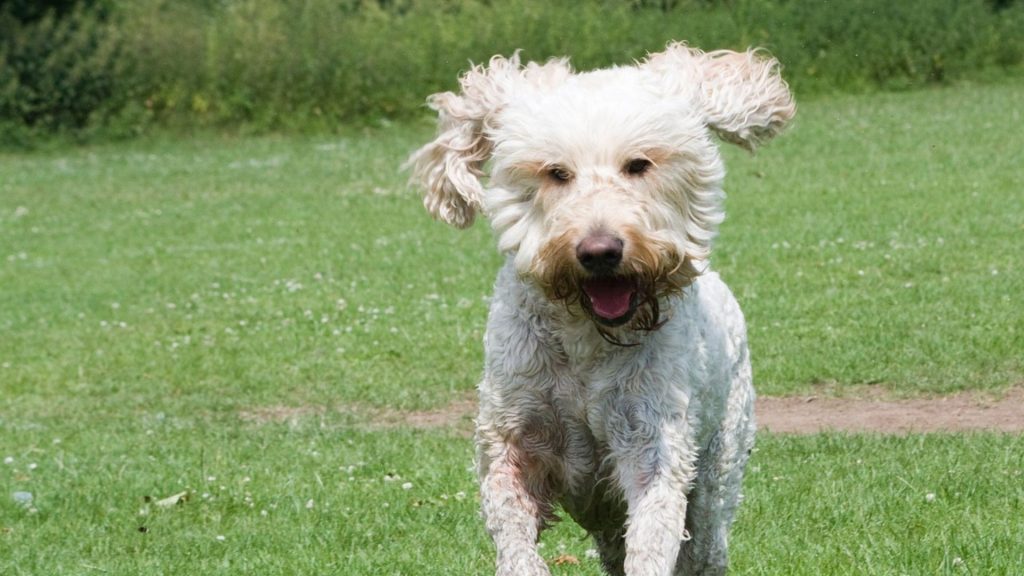
Training and Socialization
Mini goldendoodles are intelligent and eager to please, making them relatively easy to train. However, early socialization and consistent training are crucial for raising a well-behaved adult dog. Here are some tips for effectively training your mini goldendoodle:
- Start training and socialization early, ideally between 8-16 weeks of age.
- Use positive reinforcement techniques, such as treats and praise.
- Keep training sessions short and fun to maintain their interest.
- Expose them to various people, animals, and environments to build confidence.
- Enroll in puppy classes for structured training and socialization opportunities.
- Be consistent with rules and boundaries to avoid confusion.
Remember, mini goldendoodles are sensitive dogs that respond best to gentle, reward-based training methods. Harsh corrections can lead to anxiety or fear, so always approach training with patience and positivity.
Living with a Full-Grown Mini Goldendoodle
Mini goldendoodles are adaptable dogs that can thrive in various living situations. Their moderate size makes them suitable for both apartment living and homes with yards. However, regardless of your living space, they need plenty of attention and interaction with their family.
These dogs are excellent companions for:
- Families with children
- Active singles or couples
- Seniors looking for a loving, manageable-sized dog
- First-time dog owners
Mini goldendoodles generally get along well with other pets, especially if they’re socialized from a young age. Their friendly nature makes them poor guard dogs, but excellent therapy or emotional support animals.
Nutrition and Feeding
Proper nutrition is crucial for maintaining the health and longevity of your full-grown mini goldendoodle. Here are some guidelines for feeding your adult mini goldendoodle:
- Choose a high-quality dog food appropriate for their size and activity level.
- Feed them twice a day, following the portion recommendations on the food packaging.
- Adjust portions based on their individual needs and activity level to maintain a healthy weight.
- Avoid overfeeding, as mini goldendoodles can be prone to obesity.
- Provide fresh, clean water at all times.
- Consult with your veterinarian about any specific dietary needs or restrictions.
Remember that treats should make up no more than 10% of their daily caloric intake. Use treats for training purposes and as occasional rewards, not as a significant part of their diet.
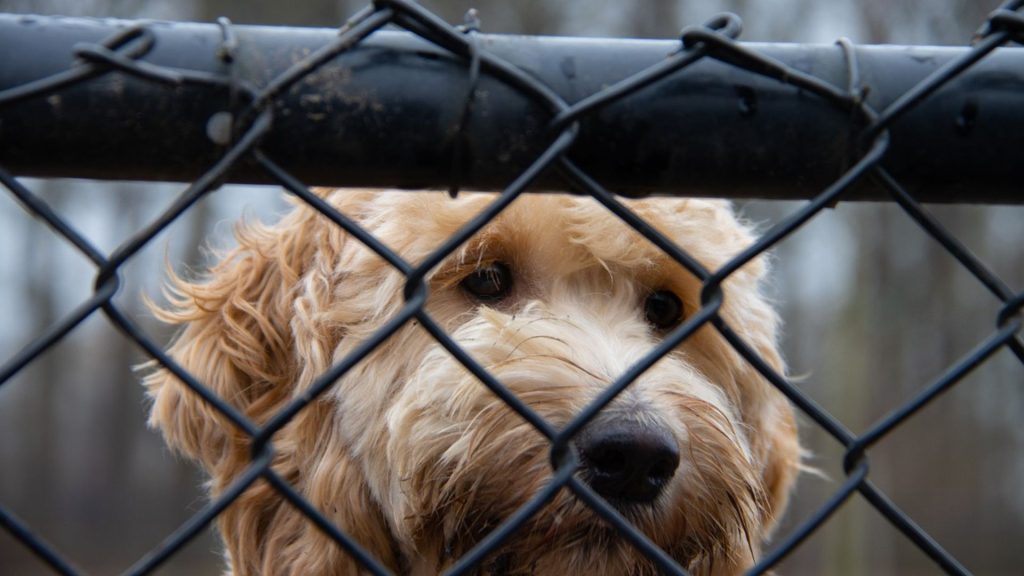
Conclusion
Full-grown mini goldendoodles are charming, intelligent, and affectionate companions that bring joy to countless households. Their moderate size, coupled with their friendly temperament and low-shedding coat, makes them an excellent choice for a wide range of dog lovers. While they require regular grooming and plenty of exercise and mental stimulation, the love and companionship they offer in return are immeasurable.
If you’re considering adding a mini goldendoodle to your family, be prepared for a loyal, playful, and loving companion that will keep you on your toes and fill your heart with warmth. With proper care, training, and lots of love, your mini goldendoodle will grow into a wonderful adult dog that brings happiness and laughter to your home for years to come.

Hello, I’m Donna Carter, the founder and writer behind PetFleck.com. My journey with dogs started years ago, and it’s been a passion that has only grown stronger over time. I’ve always been fascinated by the unique behaviors and characteristics of different dog breeds, and this curiosity has led me to dive deep into the world of canine studies.
My love for dogs is the driving force behind everything I do. I’ve dedicated countless hours to researching and understanding the nuances of dog care, training, and breed-specific traits. This dedication helps me create content that is not only informative but also genuinely helpful for fellow dog lovers and owners.
At PetFleck, I combine my extensive knowledge and hands-on experience with my passion for dogs to provide valuable insights and tips. Whether it’s exploring different breeds or offering practical advice on dog care, I aim to share knowledge that makes a real difference in the lives of dogs and their families.
I’m thrilled to share my love for dogs with you through my writing. I hope my articles inspire and inform, helping you to better understand and appreciate the incredible bond we share with our furry friends.
Thank you for visiting PetFleck.com, and I look forward to connecting with you through our shared love of dogs!
